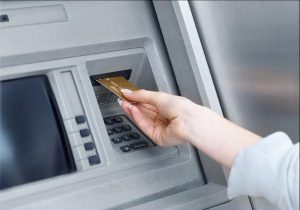Check(ing) please
Now that school is out for the summer, this is a great opportunity to continue your children or grandchildren’s education. Instead of the typical topics of reading, math or science, how about spending some time on personal finance?
Fortunately, you don’t need to be a financial guru to pass on some simple concepts around money. One of my colleagues recently spent time in one of our local high schools explaining  personal finance to a group of students. Things that many of us may take for granted are new concepts to teenagers such as what a debit card is (hint — it’s not the same thing as a credit card).
personal finance to a group of students. Things that many of us may take for granted are new concepts to teenagers such as what a debit card is (hint — it’s not the same thing as a credit card).
One of the most basic, yet critical, financial resources to have is a checking and savings account. The good news is that it’s fairly easy to open a new account. Children as young as age 13 can open their own account. Younger children can have an account if an adult serves as the custodian of the account.
To open their own account, children will need a Social Security number as well as an identification card (examples include a student ID, driver’s license, or passport). I recommend you go with the child in case additional forms or information are required (such as proof of address).
I encourage people to open accounts when their children start working so they have a place to deposit their wages and to become comfortable with methods for accessing their money (such as the aforementioned debit card). Ideally this happens before they move out on their own so you can provide some guidance along the way.
Linking the checking account to a savings account provides another “bucket” to separate money to spend immediately from money that’s accumulating for other goals. This is the equivalent of using envelopes or jars to separate money based on its purpose. Economists call this concept “mental accounting.” Even though the money has the same owner and potentially could be spent on anything, the act of separating it and giving it a specific purpose increases the likelihood the money won’t be spent frivolously.
Rather than scouring the internet or researching multiple options, I would just start with your existing bank to see if they allow minors to open accounts. Credit unions are often a good resource, as well.
One of my favorite books for parents or grandparents on the topic of educating children around positive financial habits is “The Opposite of Spoiled: Raising Kids Who are Grounded, Generous, and Smart About Money” by Ron Lieber. Lieber shares stories of how other parents have approached this topic while also providing some practical tips you can apply to your situation.






